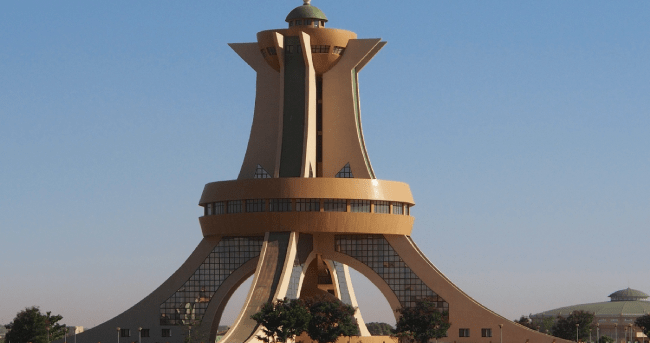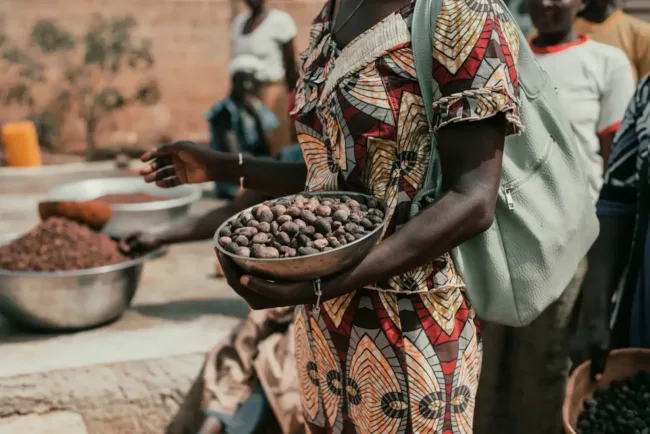
Burkina Faso
Welcome to Burkina Faso
Traveling to Burkina Faso? You may need a visa – find out if you do, which type, and how to apply so you can get the paperwork out of the way and focus on your trip.

What’s a Burkina Faso eVisa and who’s it for?
Who’s the Burkina Faso eVisa for? This visa is required for travelers from most countries.
Who’s not eligible for a Burkina Faso eVisa? Citizens of the following countries can visit Burkina Faso without a visa:
Benin, Cape Verde, Central African Republic, Côte d'Ivoire, Gambia, Ghana, Guinea, Guinea-Bissau, Liberia, Mali, Mauritania, Morocco, Niger, Nigeria, Senegal, Sierra Leone, Singapore, and Togo.
The max. allowed stay varies per nationality. Please check this on the government website before making travel plans.
What’s the purpose of a Burkina Faso eVisa? This visa is only valid for tourism purposes.
How long can you stay with a Burkina Faso eVisa? Choose between a single-entry or multiple-entry visa:
-
Single-entry: Allows you to enter Burkina Faso for one stay of up to 90 days.
-
Multiple-entry: Enter and leave the country multiple times over a period of 3 months.
What’s a Burkina Faso Visa on Arrival and who’s it for?
Who’s the Burkina Faso Visa on Arrival for?
Visas on arrival are available for travelers from the following countries:
All European Union member states (except Bulgaria, Cyprus, and Romania), Argentina, Australia, Brazil, Canada, Chad, Colombia, Comoros, Cuba, DR Congo, Djibouti, Egypt, Eritrea, Hong Kong, Iceland, Kenya, Libya, Liechtenstein, New Zealand, Norway, Paraguay, São Tomé and Príncipe, Somalia, Switzerland, Taiwan, Tunisia, United Kingdom, United States, Venezuela.
Citizens from Peru can also get a visa on arrival if they have a valid Schengen Visa.
What’s the purpose of a Burkina Faso Visa on Arrival? Tourism.
How long can you stay with a Burkina Faso Visa on Arrival?
The visa on arrival allows a stay of up to 1 month. You can get this visa on arrival at the airport or at the border in Burkina Faso.
What are Burkina Faso’s long-term visa options?

Burkina Faso offers several long-term visa options for various purposes, such as employment, study, business, and residence.
Since online information about long-term visas is limited, we recommend contacting the nearest Burkina Faso Embassy or Consulate in your home country for more information.
At iVisa, we currently don’t offer these visas.
Staying healthy in Burkina Faso: Here’s what you need to know
Traveling to Burkina Faso presents a unique set of health considerations due to its geographical location, climate, and available medical facilities. Here's what travelers should know.
Make sure to stay updated on routine vaccines
-
Keep updated with Burkina Faso's COVID-19 requirements, such as quarantine, testing, or vaccine certificates, through your airline or the Burkina Faso government website.
-
Ensure your routine vaccines such as measles-mumps-rubella (MMR), diphtheria-tetanus-pertussis, varicella (chickenpox), polio, and your yearly flu shot are up to date.
-
A yellow fever vaccination certificate is required for entry into Burkina Faso for all travelers aged nine months and older.
Medical facilities
-
Health facilities in Burkina Faso are limited, especially outside of the capital city, Ouagadougou.
-
While there are clinics and hospitals in major cities, they may not meet the standards you're accustomed to.
-
Pharmacies are available in urban areas but may not always stock a full range of medications. It’s advisable to bring a sufficient supply of any prescribed medicines.
Health insurance
We’d always recommend taking out health insurance before you travel anywhere from any destination.
Contact your insurance provider before traveling to make sure you have the right level of coverage.
Other things to consider:
-
Trip cancellation, delay, and interruption benefits.
-
Medical expenses and medical evacuation benefits.
-
Baggage coverage.
Things to be aware of when visiting Burkina Faso
Keep an extra eye on the following to keep healthy and safe during your trip to Burkina Faso:
1. Malaria, dengue, and Zika: Use mosquito repellents, wear long sleeves and trousers, sleep under a mosquito net, and consider prophylactic medication.
2. Water and food safety: Drink bottled or boiled water and avoid ice cubes. Only eat well-cooked, preferably hot, food, and avoid raw vegetables and peeled fruits.
3. Schistosomiasis: A parasitic infection that can be contracted by swimming in fresh water in Burkina Faso. Avoid swimming in fresh water bodies.
Medication for personal use
Follow these tips to bring into Burkina Faso some over-the-counter medicines:
-
Declare all medications: Report all medication for personal use to customs authorities.
-
Original packaging: Always keep medicines in their original containers and transparent bags in your hand luggage.
-
Prescription or doctor's letter: Present the medical prescription issued by your doctor or other competent authority, in English.
-
Check for restrictions: Call Burkina Faso's embassy to verify that all of your prescriptions are legal to bring with you.
-
Quantity aligned with itinerary: Bring only a reasonable quantity that aligns with the duration of your stay to avoid complications.

Related Articles


 Australia ETA Online
Australia ETA Online
 United Kingdom ETA
United Kingdom ETA
 India Tourist eVisa
India Tourist eVisa
 Canada ETA Visa
Canada ETA Visa
 Turkey eVisa
Turkey eVisa
 Egypt eVisa
Egypt eVisa
 Singapore SG Arrival Card
Singapore SG Arrival Card
 Indonesia eVoa Visa
Indonesia eVoa Visa
 Aruba ED Card
Aruba ED Card
